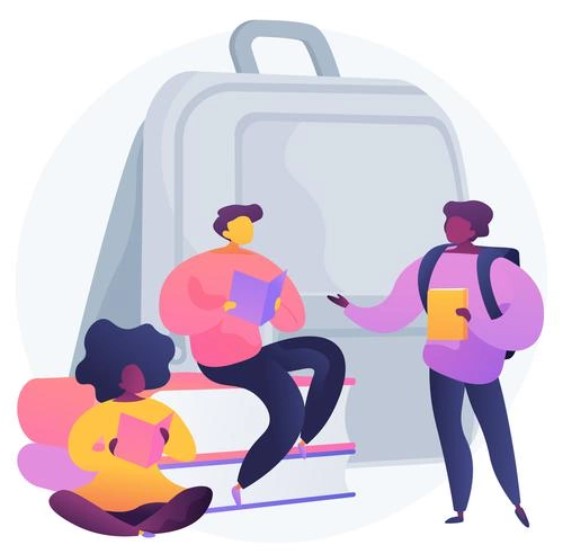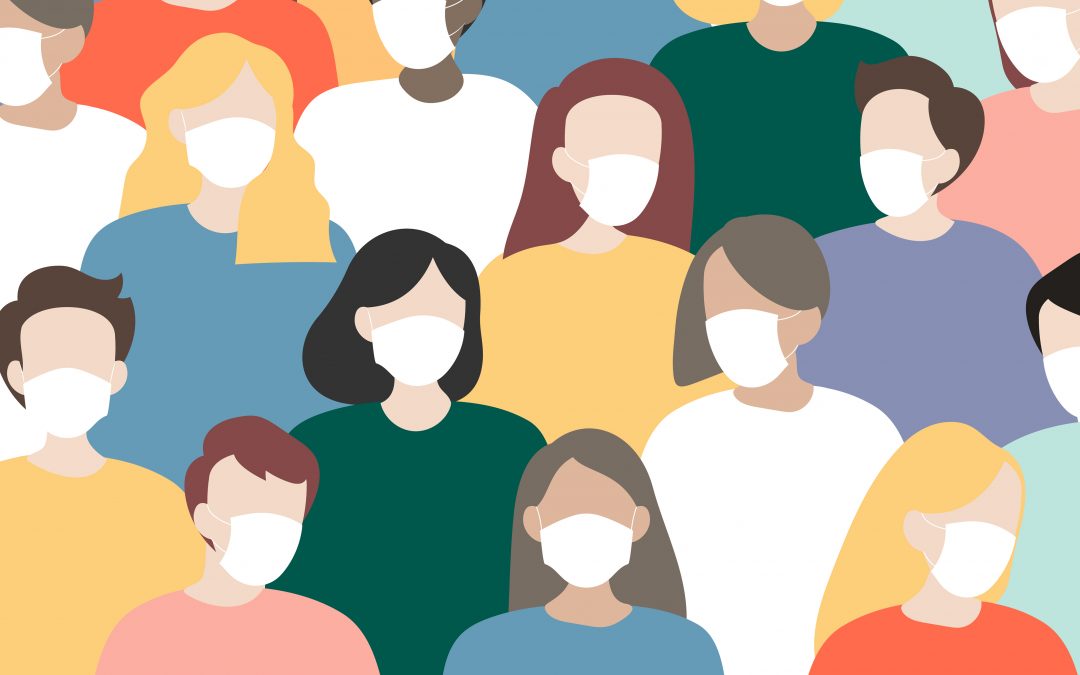Hi readers!
Not only has another school year begun (meaning that my monthly mental health blogs will be returning!!!), but, after many many many months of at-home living, we are all returning to in-person life here at UVic.
As an “introvert” (which Eysenck [1967] describes as someone with a low need and/or desire for external stimulation, including stimulation from social interactions) I predicted something very specific about my own experience following this semester’s return to campus: EXHAUSTION.
To provide some reference for this prediction of mine, here are a few truths about myself that have remained constant for as long as I can remember:
- After intense social experiences, I am absolutely drained (even if and when they are incredibly positive experiences).
- It takes me multiple hours of being alone at the end of any given day to truly wind down, and “shut off,” before finding restful sleep.
- I am never entirely relaxed when in social situations. By this, I am not referencing anxiety in relation to socializing (which is an incredibly valid and common occurrence for many individuals, but has/is not the case for me, personally). Rather, when around others, a portion of my energy is spent keeping me in a state of being “on,” regardless of how positive/negative or how comfortable/uncomfortable I am with those I am interacting with.
To put in plainly: I “recharge” when I am alone.
Many people reading this may not identify with my experiences and feelings whatsoever, while others may feel exactly as I do. Further, many more may fall somewhere in between the spectrum between “introverted” and “extraverted” (in the context of where we are able to recharge and find true rest).
The best part is that not a single person’s experiences are wrong, or better than another’s. They are just different.
After almost two years of nearly complete isolation from social situations, large groups, conversations lasting multiple hours, etc., I had become unsettlingly accustomed to a reality where I did not expend much (if any) daily energy on social interactions. Knowing this had me preparing myself for the worst. In the past (pre-pandemic conditions) I would always feel completely spent after absolutely any major social interaction (e.g., concert, party, long school day). And, in said pre-pandemic conditions, the exhaustion I commonly felt after socializing had never followed an almost two-year-long hiatus of true social interaction…
Weirdly, although I was relatively tired after my first day back (where I spent the day with a classmate and on campus, away from my home, from ~7am-9pm), I was nowhere near as exhausted as I thought I would be. In fact, throughout my first few weeks back, I found myself feeling pretty bummed when I would leave campus to head home each day. I genuinely wanted to spend more time there, and around other people.
While this is obviously just my personal experience, and likely varies greatly from other individuals’, I do have a little “theory” as to why my mind and body have surprised me with this newfound additional energy following extensive social interactions.
I think that I, an “introvert” by nature, who enjoys time alone, feels the most rested when alone, and can become tired/drained from extended social interaction, forgot just how necessary social interaction was for my sense of well-being.
I have always been aware that I am very comfortable with being alone (meaning that, when pandemic conditions set in, I did not personally feel distress to the same degree as many others did [for incredibly valid reason] in reference to the reduced levels of social interactions we lived through). For me, acclimating to being alone almost all of the time (when being alone was already my safe, comfy, and recharging place) was not extraordinarily difficult. What I didn’t notice happening to me throughout the last ~2 years, was the slow and steady loss of net energy I was enduring, that I had (pre-pandemic) unknowingly been gaining through genuine social connection with other individuals, groups, and society.

My experience actually aligns with empirical research, showing how “introverts” often underestimate just how much joy and happiness they will experience within social interactions, where they will be acting “extraverted” (Zelenski et al., 2013). Having reflected, and realizing just how accurate this has been for me, I plan to remind myself (when I can, going forward) of my tendency to assume that social interactions will be less valuable to my well-being than they actually will be.
I aim to start thinking of things this way:
“Maybe, to be able to fully recharge on my own, I need the little pockets of energy I absorb from others in social interactions. I had once thought that the only thing I needed to recharge was to be alone. Instead, I should remember: although being alone is where the recharging happens for me, there will be nothing to energize the battery, and prepare it for recharging, without social connection.”
Regardless of how you find your sense of rest, whether it be with others or alone, now is an extremely interesting time for all of us. Collectively, we are shifting from what had become our “new normal”, to a “new, new normal.”
It is okay if right now feels really weird, great, awful, exciting, exhausting, or any other potential feeling under the sun. We are quite literally in a time of serious adjustment and change, at both the individual and societal level. It can be really tough not to blame ourselves for the internal confusions and/or struggles that (will undoubtedly) come up for each of us in this massive transitional period. And so, I challenge each and every one of us to try our hardest to treat ourselves with every ounce of compassion we can possibly muster:)
Screw the stigma<3
-Tristen
References
Eysenck, H. J. (1967). The biological basis of personality. Springfield, Ill.
Zelenski, J. M., Whelan, D. C., Nealis, L. J., Besner, C. M., Santoro, M. S., & Wynn, J. E. (2013). Personality and affective forecasting: Trait introverts underpredict the hedonic benefits of acting extraverted. Journal of Personality and Social Psychology, 104(6), 1092-1108. https://doi-org.ezproxy.library.uvic.ca/10.1037/a0032281
The views expressed in this blog are my own, and do not necessarily reflect the policies or views of the University of Victoria. I monitor posts and comments to ensure all content complies with the University of Victoria Guidelines on Blogging.
